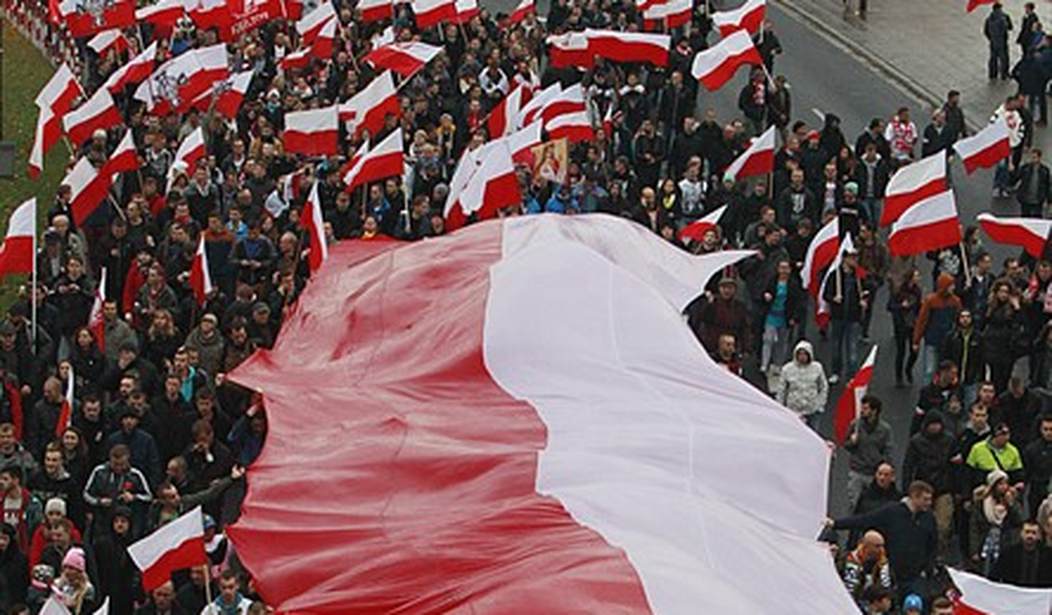Author’s Note: My new film, “Poland: From Socialism to Prosperity,” which premiered in Warsaw last Saturday, tells the story of life under socialism and confirms the superiority of capitalism.
The story: Standing in line developed into a fully-fledged science in socialist Poland: With lines everywhere and people often having to wait for hours and hours – or even several days in the case of furniture or household products – some clever systems emerged. One of them was called the “line list,” which was used when people had to wait for days, not hours. In that case a list was made of all the people waiting in line so that they didn’t need to physically be there all the time. Every few hours the list was read aloud and people needed to register their presence – if they were no longer in line, they would be crossed of the list. The schedule for taking the register was announced ahead of time. When the waiting period was days not hours, people needed to report three to four times a day. Some people took a leave of absence from work, some just asked supervisors to let them go and come back quickly, and some paid others to register on their behalf (it was called “hiring a stander”). Custody over the line list was taken care of by the self-proclaimed line committee.
You had to know the salesperson in a shoe shop, who could sell you a pair of shoes that you would then present as a bribe to a guy that could sell you a bicycle that you would then give to the baker to pay for the wedding cake for your electrician’s daughter. According to Karl Marx, socialism was nothing more than a transitional stage to communism. Under communism, so his line of reasoning went, all people would be able to live according to their needs. The Poles who stood in line for hours to get the bare necessities of life, however, faced the reality of Marx’s vision with derision. One popular joke in Poland was:
Recommended
“How will the problem of queues outside shops be solved when we reach full Communism?”
“There will be nothing left to stand in line for.”
None of this was all that long ago. The above reports all describe the situation in Poland in the 1980s, which was a world away from today’s Poland. Since 1989, Poland’s gross domestic product per capita has increased threefold. Poland has recorded average real economic growth of 3.5 percent per year. The country’s economy grew to become the sixth-largest in the European Community in the decades following the launch of market-economy reforms. Poland has had the fastest growing economy in Europe since the 1989 reforms and is widely regarded as Europe’s Growth Champion.
The Heritage Foundation has been publishing the Index of Economic Freedom every year since 1995. Poland ranks 39th with a score of 68.7, which does not seem particularly remarkable at first and is certainly not among the highest scores. Nevertheless, it does mean that Poland is more economically free than Spain, Israel, France or Italy, for example. But of far greater importance than the absolute rank is a country’s relative change since 1995, and on this measure Poland does come out on top. But economic freedom in Poland today is under threat. Since 2015, when the PiS party took power, spending on social welfare programs has surged, privatizations have largely been halted, and even banks and businesses that had already been privatized have been transferred back into the hands of the state. In short, Poland is in the process of abandoning the market economy path that made the country so successful. Nevertheless, this does not detract from the success story of Poland in the 25 years from 1990 to 2015.
According to data from the World Bank, GDP per capita in 1989 was 30 percent of the corresponding figure in the U.S. and had risen to 48 percent of the U.S. level by 2016. Such gains made themselves felt in people’s lives. The income of Poles grew from about USD 10,300 in 1990, adjusted for purchasing power, to almost USD 27,000 in 2017. In comparison with the EU-15, the income of Poles was less than one-third in 1989 and had risen to almost two-thirds in 2015.

























Join the conversation as a VIP Member